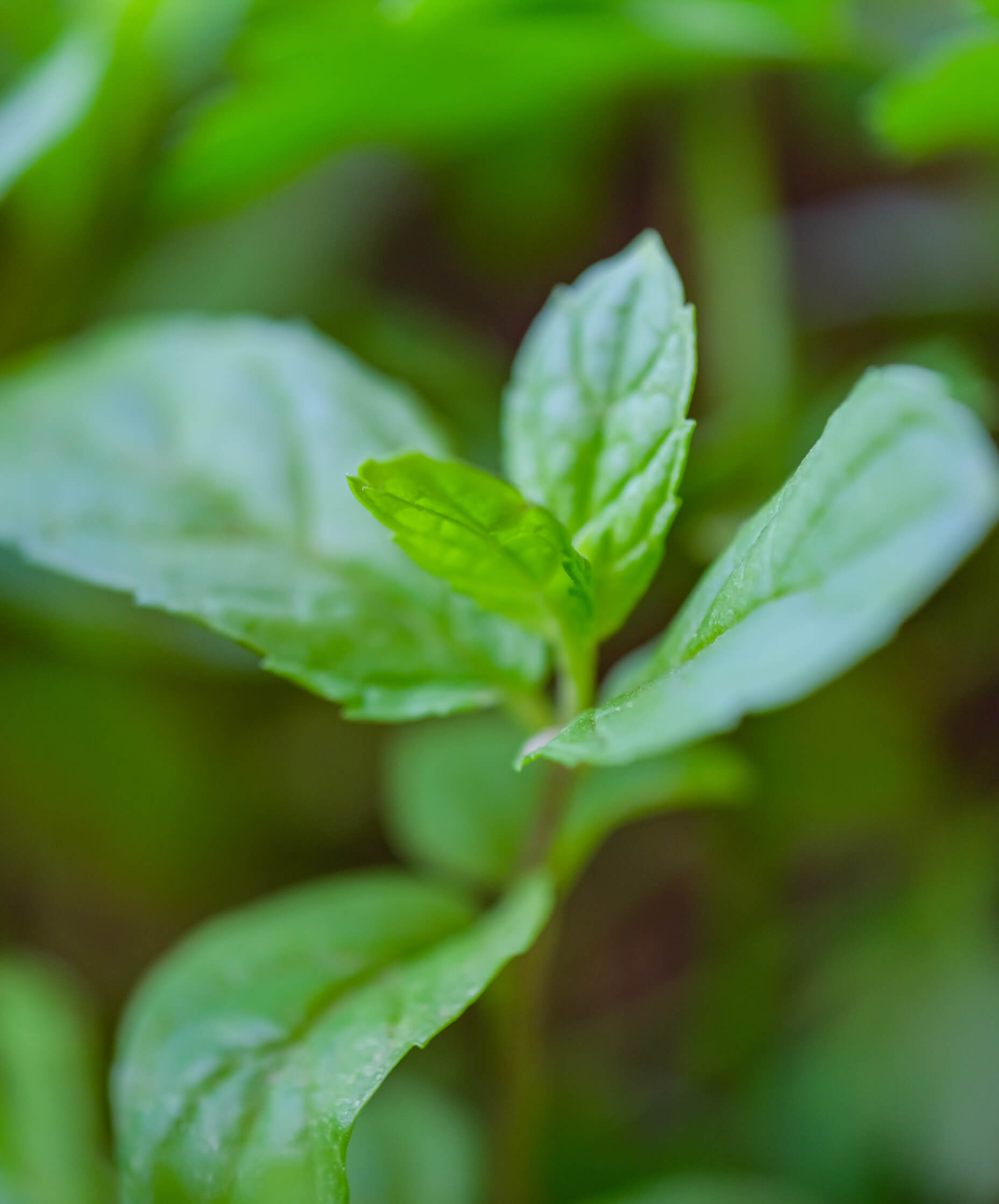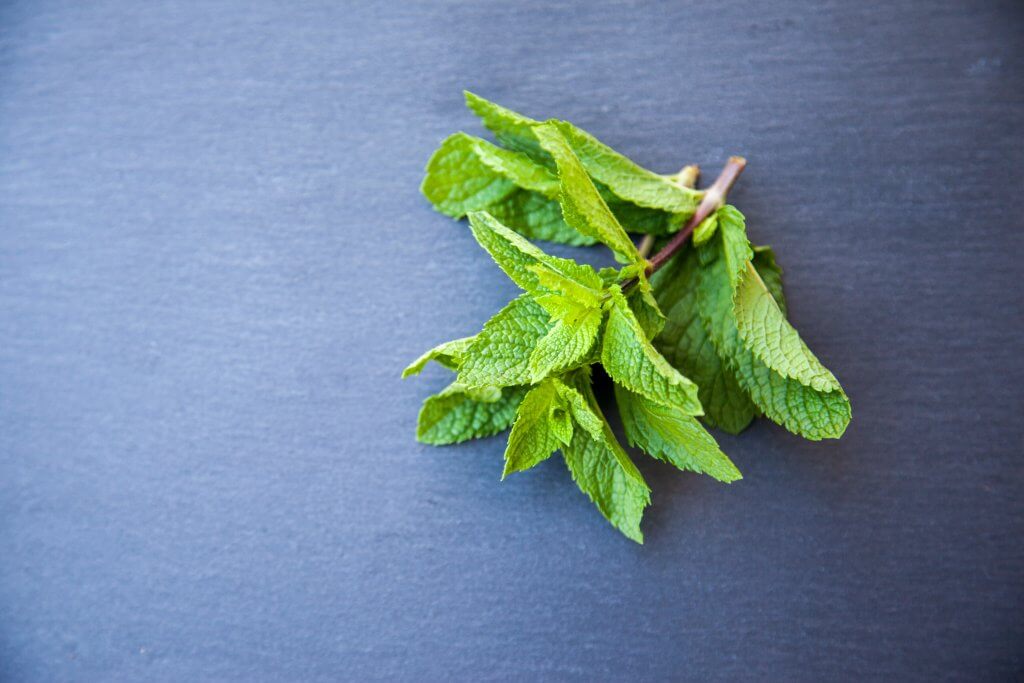Peppermint/Mint

Mentha piperita (Lamiaceae)
The origins of peppermint seem to be a mystery, but it has been around for thousands of years. It is grown commercially and in gardens throughout Europe, Asia and North America. Peppermint belongs to the mint family and is a natural hybrid of spearmint and wild mint. The leaf and oil offer healing effects to the body. Peppermint has square stems, stalked, smooth with dark green leaves. Like other mints, it can grow abundantly due to its underground stems.
Peppermint In History
Dried peppermint leaves were found in Egyptian pyramids dating from around 1000 BCE. The Greeks and Romans highly valued it, but it only became popular in Western Europe in the 18th century.
Forklore
Peppermint was used in healing potions and mixtures and in purification spells. The fresh leaves rubbed against the head were said to relieve headaches. Peppermint worn at the wrist assured good health. Fresh peppermint kept at the alter brought in good spirits and, when rubbed on furniture, cleansed them of evil and negativity.

Fun Facts
1. Drinking hot peppermint tea can relieve a sore throat
2. There are wide varieties of wild peppermint

What Are The Health Benefits Of Peppermint
Research has shown that volatile oil is strongly antibacterial. Menthol is antiseptic, antifungal, cooling and anaesthetic to the skin, although it is also an irritant. The whole plant has an antispasmodic effect on the digestive system. Clinical trials in Denmark and the UK during the 1990s have confirmed its value in treating irritable bowel syndrome.
Peppermint is the most potent mint medicinally, though the other mints also have medicinal benefits. Peppermint has activity against many pathogens, including streptococcus, staphylococcus, and candida.
Digestive Problems
Peppermint is excellent for the digestive system, increasing the flow of digestive juices and bile and relaxing the gut muscles. It is known to reduce nausea, colic, griping and wind, and research has shown the efficacy of peppermint oil in conditions of IBS. Peppermint helps soothe the lining and muscles of the colon and is believed to aid diarrhoea symptoms and relieve a spastic colon (often the cause of constipation). Peppermint is known to play a role in treating ulcerative conditions of the bowels.
Can peppermint tea help with constipation?
The menthol compound contained in peppermint has a soothing effect and may relax muscles in the bowels to promote bowel movements.
Pain Relief
Topically, mint is an analgesic and anaesthetic. Warm applications of mint may be helpful to treat back pain, hives, joint inflammation, lung infection, neuralgia, rheumatisms, and cold compressions to help with fever and headaches, especially if linked to the digestive system. The compressions help to reduce pain and sensitivity.
Headaches And Migraines
Peppermint may help with headaches significantly when associated with tension. The volatile oil may act as a nervine action and ease anxiety and stress. Menthol helps increase blood supply which may help with pain reduction.
Is peppermint tea good for stress and anxiety?
Yes, because menthol in peppermint has a calmative effect on the body
Sinus Relief
Clinical studies were carried out on 40 subjects to demonstrate the effects of inhalation of L-menthol (a compound from peppermint) and other menthol agents with a similar peppermint smell. The findings showed that L-menthol had pharmacological action against a nasal obstruction. This means steam inhalation of peppermint tea can be helpful in blocked sinuses. Drinking peppermint tea or steam inhalation can also be beneficial during the allergy season when hay fever symptoms are marked.
Menstrual Cramping
Peppermint may help relieve symptoms associated with menstrual pain. It has natural analgesic effects and calming properties. A clinical trial on 127 women with menstrual pain showed that peppermint extracts acted as an anti-inflammatory drug and helped reduce the symptoms.

Any Contraindications?
Peppermint tea is generally safe to drink with minimal side effects. For some, it may cause acid reflux, especially if there is a history of gastroesophageal reflux disease
Can too much peppermint tea make you feel unwell?
No minimum guidelines are suggested, but drinking 2-3 cups daily should be fine. You should stop drinking peppermint tea if you experience an allergic reaction such as hives, itchy throat or tongue.

Tea With Peppermint
We regard peppermint as an essential element to work with when curating a tea blend. Here are a few tea blends that contain peppermint.
Moroccan Mint is an award-winning tea that combines gunpowder green tea with peppermint leaves. It is a refreshing and energising tea ideal for drinking during the day when energy is low.
Love is a herbal infusion combining damiana, cinnamon, lemongrass, passionflower, orange peel, jasmine flowers, and mint. We have added mint to this blend to help relax the body and release tension and anxiety.
Sleep well is an award-winning tea that offers a delicate cup of tea before bedtime. The key elements are valerian, skullcap, chamomile, and peppermint, which combine well for a perfect night’s sleep.
Muscle Ease is the perfect example showing the incredible healing effects of peppermint, which has been combined with chamomile, lavender, and passionflower to enhance the healing effect.
Digest has been curated to aid digestion and offers a refreshing minty cup. Peppermint is blended with rose hips, anise and liquorice to enhance the healing effects.
Immune Boost has been formulated by combining peppermint, ginger, sage, elderflower, and yarrow.
Peppermint is known for its antimicrobial and antiviral properties, and when combined with these elements, the infusion offers a powerhouse cup of tea.
Disclaimer: This website contains general information about the traditional use of herbal teas. The information is not advice, and should not be treated as such. If you have any specific questions about any medical matter you should consult your doctor or other professional healthcare providers.






